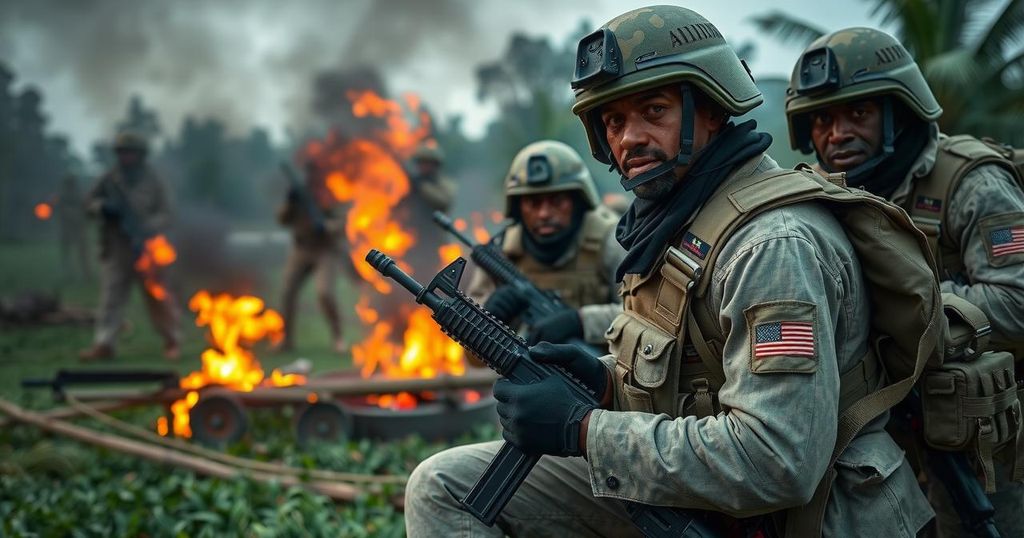Escalating Violence in North Kivu: Humanitarian Crisis Deepens with Displacement of 290,000 People

Heavy fighting in North Kivu’s Lubero region has displaced over 290,000 people in December 2024, as per the UN report. The total displaced individuals in North Kivu have reached 2.7 million due to ongoing clashes between the FARDC and M23 rebels, worsened by ADF attacks. The humanitarian crisis continues to deteriorate amid failed peace negotiations, particularly in strategic locations like Masisi and Goma.
In December 2024, heavy fighting in North Kivu’s Lubero region led to the displacement of over 290,000 individuals, bringing the total number of displaced persons in the province to 2.7 million, according to the UN Office for the Coordination of Humanitarian Affairs (OCHA). The ongoing conflict is primarily attributed to clashes between the Congolese army (FARDC) and the M23 rebel group, which has intensified due to resumed attacks from the ADF (Allied Democratic Forces). The humanitarian situation continues to worsen as these armed confrontations disrupt the lives of local civilians, exacerbating their vulnerability.
The ongoing struggle in North Kivu showcases the complexities of conflict in the region, with the M23 being backed by Rwanda, which is providing them with military support, including advanced weaponry. The situation is compounded by failed peace negotiations in Luanda in mid-December that aimed to stabilize the area. Control over strategic locations like Masisi has shifted multiple times between the M23 and government forces, underscoring the volatility of the conflict.
Amidst this turmoil, the city of Masisi remains in contention, being less than 80 kilometers from Goma, which has been under siege by M23 forces for months. The pro-government militia, known as Wazalendo, collaborates with the Congolese army to retain control of key territories, as the rebels maintain strategic positions in the surrounding hills, threatening further assaults on the city. The humanitarian crisis is escalating as the cycle of violence continues unabated.
The Democratic Republic of Congo (DRC) has been beset by conflict for decades, with various armed groups vying for power and control over regions rich in natural resources. The M23 rebel group, which arose in 2012, is known for its ties to Rwanda, while the ADF is a Ugandan insurgent group operating in the eastern regions of the DRC. Their activities have complicated the already precarious situation for millions of civilians, leading to mass displacements and exacerbated humanitarian crises. With the presence of different armed factions, ongoing violations of human rights, and the breakdown of peace talks, the population faces immense challenges in securing safety and basic needs, including access to education.
The conflict in North Kivu represents a severe humanitarian crisis, marked by the large-scale displacement of civilians and the ongoing confrontations between armed groups. The support that the M23 receives from Rwanda, coupled with the resurgence of the ADF, highlights the intricate regional dynamics fueling the violence. The deteriorating situation places immense strain on communities already vulnerable to economic and social disruptions, necessitating urgent international attention and intervention to alleviate the plight of the affected populations.
Original Source: www.fides.org








